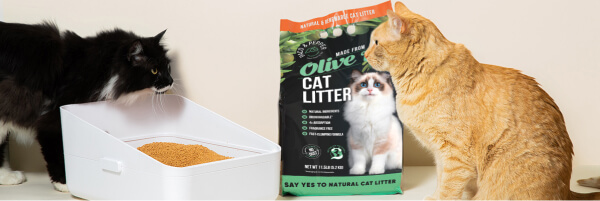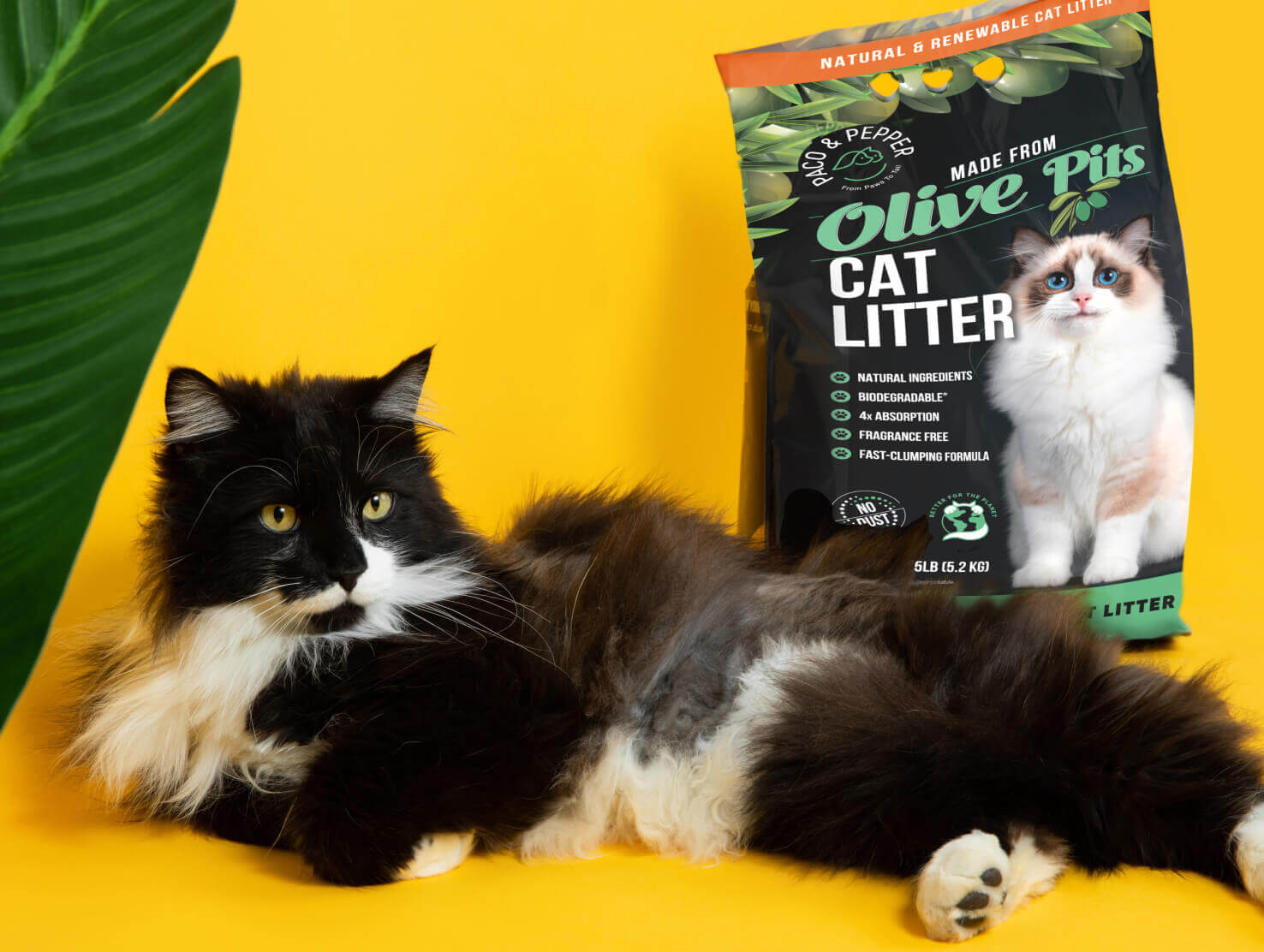Why Is My Cat Eating Litter

When a cat starts eating litter, it can be very worrying for pet owners. Not only is this behavior unusual,
but it may also indicate underlying health problems or nutritional deficiencies. So why do cats eat litter,
what are the potential health risks associated with it, and what steps can you take to prevent it?
To understand why some cats eat litter, we need to take a closer look at the various factors that may encourage
this behavior.
Nutrient deficiency
Why is my cat eating cat litter? One of the simplest reasons why a cat may start eating litter is due to a lack of essential nutrients in its diet. This is often associated with iron deficiency, which can lead to anemia, prompting cats to seek alternative sources of minerals. Consuming non-food items such as cat litter may be a cat's instinctive way of compensating for these deficiencies. It is vital to ensure that your cat's diet is well-balanced and meets all of its nutritional needs. High-quality commercial cat foods are usually formulated to meet nutritional standards set by AAFCO, but checking with your veterinarian about your cat's specific dietary needs is always a smart precaution.
Pick syndrome
Why does my cat eat litter? Pick syndrome is a behavioral condition that results in the consumption of non-food items. In cats, pica can occur when chewing or eating objects such as fabric, plastic, and in some cases, cat litter. The causes of the peak can be varied, including genetic predisposition, stress or disease. Be sure to contact your veterinarian for advice.
Curiosity, especially in kittens
Why do cats eat cat litter?Kittens are naturally curious and explore the world using their senses, including taste. It's not uncommon for kittens to try or eat litter just to explore. Although they usually outgrow this behavior. It is important for pet owners to monitor their kittens and provide them with safe and appropriate toys that satisfy their need to chew and explore. Switching to a non-toxic, kitten-safe litter at this stage can prevent health problems associated with the ingestion of inappropriate materials.
Medical diseases
Why does my cat eat litter?Certain medical conditions can also cause your cat to eat litter. For example, cats with kidney disease or diabetes may experience increased thirst and may try to swallow cat litter due to confusing signals in their body. Additionally, conditions that affect cats' cognitive function, such as feline dementia, can lead to unusual behavior, including eating non-food items. It is important to have regular veterinary exams to rule out or treat any health problems that may be contributing to this behavior.
Boredom or anxiety
Why is my cat eating kitty litter?Finally, emotional factors such as boredom or anxiety may prompt a cat to engage in unusual eating habits. Cats that don't get enough mental stimulation or exercise may start eating litter to self-soothe or just to pass the time. Likewise, anxiety—whether from changes in the home environment, conflicts with other pets, or a lack of routine—can lead to similar behaviors. Providing a stimulating environment with plenty of toys, play time and attention can help mitigate these problems. For cats prone to anxiety, strategies such as creating a more routine environment or using pheromone diffusers may be helpful.
Why do cats eat litter? Diagnosis of the cause of eating the litter
What to do if your cat eats cat litter:
Veterinary Examination: A thorough medical examination can rule out or confirm any medical conditions affecting this behavior.
Diet review: Evaluating your cat's diet with your veterinarian will help you determine whether it is adequate.
Consequences of litter consumption
Consuming cat litter can lead to serious health complications:
- Intestinal obstruction: Debris can accumulate inside the digestive tract, causing a blockage that may require surgery.
- Toxicity: Some litters contain chemicals or clumping agents that are toxic if swallowed.
How to stop a cat from eating litter
Once underlying health problems have been ruled out or treated, you can take steps to prevent your cat from eating litter:
- Switch to non-clumping and non-toxic litter: This reduces the risk of intestinal blockage and toxicity.
- Provide enough toys and interaction to keep your cat mentally stimulated and reduce boredom.
- Reduce Stress: Identify and minimize stressors in your cat's environment. Paco&Peppercatlitter
By identifying the cause (medical, dietary, or behavioral), you can take appropriate action to stop the risky behavior and keep your cat healthy.


